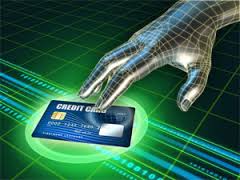Lesson 4: Privacy, Ethics & Cyber Crime
30 Mar 2016
By “ Solihin Shahril ”

CYBER CRIME
- Protect yourself from viruses
- Internet scams
- Identity theft s
WHAT IS CYBER CRIME ?
Cybercrime or computer crime is any criminal offence that involves a computer and network .
MALICIOUS PROGRAMS
A cracker is a computer criminal who creates and distributes malicious programs. Its called MALWARE . Types of malware are viruses, worms, and Trojan horses.
- Viruses
- ~Programs that migrate through networks and operating systems, and most attach themselves to different programs and database.
- ~Destructive viruses can alter and / or delete files .
- Worms
- ~Programs that simply replicate themselves over and over again. Worms can carry virus .
- ~Viruses and worms typically find their way into personal computers through e-mail attachments and programs downloaded from internet .
- Trojan Horses
- ~ Programs that appear to be harmless. They can be carries of viruses .
- ~Appear as free computer games and free screen saver programs that can be downloaded from the internet .
- Zombies
- ~Computers infected by a virus, worms, or Trojan horse that remotely controlled for malicious purposes.
- ~Botnet or robot network .
- ~Malicious activities like password cracking or sending junk e-mail .
- ~Botnets are hard to shut down and difficult to detect .
- Denial of service
- ~ (DoS) attack attempts to slow down or stop a computer system or network by flooding a computer or network with requests for information and data.
- ~ Attacks are usually Internet service providers (ISPs) and specific websites.
- Rogue Wi-Fi Hotspots
- ~ Free Wi-Fi
- ~ Once connected, the rogue networks capture any and all information sent by the users to legitimate sites including user names and passwords.
- Data Manipulation
- ~Finding entry into someone’s computer network and leaving a prankster’s massage may seem like fun.
- Identity Theft
- ~Identity theft is the illegal assumption of someone’s identity for the purposes of economic gain
- Internet Scams
- ~ A scam is a fraudulent or deceptive act or operation designed to trick individuals into individuals into providing personal information or spending their time and money for little or no return.
- ~Scammer is Phishing.
- Cyberbullying
- ~The use of the Internet, cell phones, or other devices to send or post content intended to hurt or embarrass another person.


PRIVACY
Privacy concerns the collection and use of data about individuals.
- Accuracy ( who is responsible to ensure data is correct ) .
- Property ( who owns data ) .
- Access ( who controls access to data ) .
- Large Databases
- Constantly compiling information about us. Mistaken identity occurs when an electronic profile of one person is switched with another.
- Private Network
- Many organisation monitor employee e-mail and computer files using special software called employee monitoring software.
- The Internet and the Web
- Many people believe that, while using the web, little can be done to invade their privacy. This is called the illusion of anonymity.
- Online Identity
- Many people post personal information and sometimes intimate details of their lives without considering the consequences.
- Major Laws on Privacy
- Gramm-Leach Bliley Act - Protect personal financial information.
- Health Insurance Portability and Accountability Act ( HIPAA ) - Protect medical records.
- Family Educational Rights and Privacy Act ( FERPA )-Restricts disclosure of edu. records.
Measures to Protect Computer Security
- Access can be restricted through biometric scanning devices and passwords, dictionary attacks use thousands of words to attempt to gain access.
- Encrypting
- Coding information to make it unreadable except to those who have the encryption key
- Virtual Private Network ( VPNs )
- Encrypt connection between company network and remote users.
- WPA2 ( Wi-Fi Protected Access )
- The most widely used wireless network encryption for home wireless network.
- Anticipating disasters involves physical security, data security, and disaster recovery plans.
- Preventing data loss involves protecting data by screening job applicants, guarding passwords, and auditing and backing up data.
ETHICS
Ethics are standards of moral conduct. Computer ethics are guidelines for the morally acceptable use of computers in our society
Copyright and Digital Rights Management
- Copyright
- A legal concept that gives content creators the right to control use and distribution of their work.
- Software piracy
- The unauthorized copying and distribution of software.
- Digital Millennium Copyright Act
- Establishes the right of a program owner to make a backup copy of any program and disallows the creation of copies to be sold or given away
- Digital right management ( DRM )
- A collection of technologies designed to prevent copyright violations.
Plagiarsm
The illegal and unethical representation of some other person's work and ideas as your own without credit to the originals
Source:
Computing Essentials 2015
By:(Timothy J./Linda l./Daniel A.)O'Leary